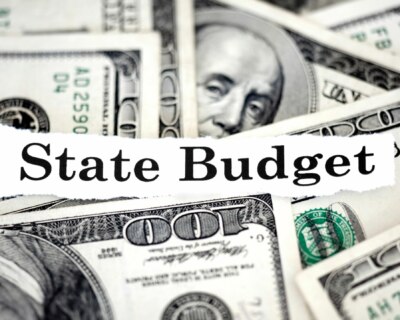Anti-Spending Measure Remains After Counter Measure Rescinded
Gov. Bobby Jindal “needs to move farther to the right on fiscal issues”
 An anti-spending House Resolution built around a 2/3 voting requirement for use of “one-time” money survived a major challenge from Gov. Jindal earlier today and remains in full force.
An anti-spending House Resolution built around a 2/3 voting requirement for use of “one-time” money survived a major challenge from Gov. Jindal earlier today and remains in full force.
Rep. Brett Geymann’s (R-Lake Charles) HR 27, which passed 60 to 42 in a House vote on May 23, precludes the use of nonrecurring state dollars to balance the budget without a 2/3 approval from House lawmakers. Geymann has argued that his resolution will bring more accountability and transparency to the spending process.
However, HR 27 threatens Gov. Jindal’s plan to cover health care costs with one-time revenue from the sale of state prisons to private firms, and Jindal warns that it would create pressure for new tax hikes.
Rep. Erich Ponti (R-Baton Rouge) had introduced HR 43 to cancel out Geymann’s rule, but he withdrew the counter-resolution before it could be put up to a vote in the House and Governmental Affairs Committee this morning.
“This is great victory for taxpayers and for grassroots activists,” Geymann said. “When it comes to spending, we need to keep the pressure on and I want to thank all of our supporters. This [the resolution] is already having an impact on the budget process.”
Although the rule technically only applies to the House, it will also help to constrain spending in the Senate, Geymann said. Any amendment from the Senate that calls for using “one-time” money will require a 2/3 vote in the House to adopt it, he explained.
For this reason, Geymann anticipates that his resolution will bring fiscal discipline to both legislative chambers. In response, Kyle Plotkin, a press secretary for Gov. Jindal, said the 2/3 requirement to use money that is already available will actually make it easier for lawmakers to hike taxes.
“It’s simply irresponsible to arbitrarily cut health care and higher education when there are other dollars available,” he said. “All that does is increase the pressure on the Legislature to raise taxes and that’s a mistake.”
Robin Edwards, a co-founder of the Louisiana Tea Party Federation, says “Bobby Jindal obviously needs to move farther right on fiscal issues… He’s stated that he will veto any new tax increases and that is good but cutting expenses during this time of economic crisis is the answer.”
Spending “one-time” money is akin to counting on overtime pay to cover monthly expenses and only serves to foster more spending, Edwards continued.
“We need real, meaningful cuts that will save our economy,” she said. “The size of our state government is too large and too unnecessary. It’s outgrown our actual needs and that’s where the cutting should begin.”
If the House does decide against using nonrecurring funds, that money will either remain in the fund where it originated, or it can remain in the general budget fund as surplus money and later used to cover any other items that are constitutionally authorized.
Kevin Mooney is an investigative reporter with the Pelican Institute for Public Policy. He can be reached at kmooney@pelicanpolicy.org. Follow him on Twitter.




